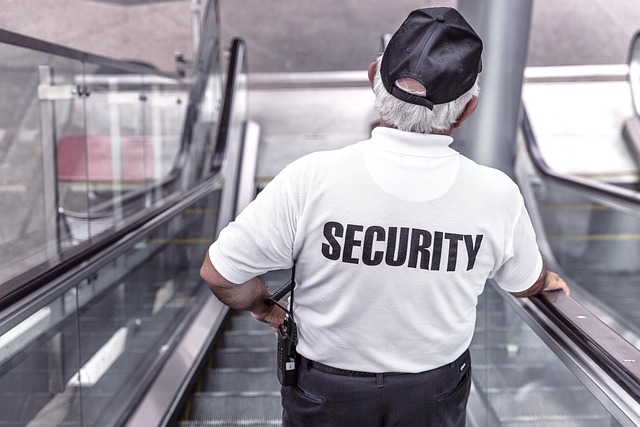Discover security jobs and explore career opportunities
The security industry encompasses a diverse range of roles designed to protect people, property, and assets across various sectors. From traditional security guards to specialized cybersecurity experts, this field continues to evolve while maintaining steady demand. Security professionals serve as the first line of defense against potential threats, working in settings from corporate buildings to healthcare facilities. For those considering this profession, understanding the variety of roles, requirements, and growth opportunities can help provide clarity about this essential field.

What Types of Environments Rely Most on Security Staff?
Security personnel are integral across numerous sectors, with some environments having particularly high demand for these professionals. Retail establishments employ security staff to prevent theft and monitor for suspicious activity, while corporate offices require security to manage access control and protect valuable assets or information. Healthcare facilities depend on security personnel to ensure the safety of patients, staff, and visitors in what can be emotionally charged environments.
Educational institutions, from K-12 schools to universities, increasingly employ security staff to create safe learning environments. Entertainment venues like stadiums, concert halls, and nightclubs require significant security presence to manage crowds and respond to emergencies. Government buildings, military installations, and critical infrastructure sites maintain robust security teams due to their sensitive nature. Financial institutions such as banks and credit unions employ security personnel to protect monetary assets and prevent robbery attempts. Additionally, residential complexes like apartment buildings and gated communities often employ security staff to provide residents with peace of mind and deter potential criminals.
How Do Security Job Formats Differ Between Full-Time and Part-Time Roles?
Security positions offer varying employment structures to accommodate different needs and career goals. Full-time security positions typically provide consistent 40-hour workweeks with benefits including health insurance, paid time off, and retirement plans. These roles often feature more advancement opportunities, specialized training, and higher compensation. Career stability is another advantage, with many full-time positions offering seniority-based benefits and job security.
In contrast, part-time security roles offer flexibility that appeals to students, retirees, or those balancing multiple responsibilities. These positions usually involve fewer weekly hours, ranging from 10-30, with more variable scheduling options including evenings, weekends, and holidays. While benefits are typically limited compared to full-time roles, part-time positions often serve as entry points into the security field, allowing individuals to gain experience while pursuing education or other commitments. Many security companies offer both options, with some part-time employees eventually transitioning to full-time roles as they gain experience and demonstrate reliability.
What Are the Typical Responsibilities of a Security Guard?
Security guards perform a wide range of duties depending on their specific position and work environment. Access control forms a fundamental responsibility, with guards monitoring entry points, verifying identification, and managing visitor logs to ensure only authorized individuals gain access to protected areas. Regular patrol routines involve systematically checking designated areas for suspicious activities, safety hazards, or security breaches.
Surveillance monitoring is increasingly important, with guards overseeing CCTV systems and other security technology to identify potential issues. When incidents occur, security personnel must respond appropriately, which may involve addressing emergencies, mediating conflicts, or contacting law enforcement when necessary. Documentation and reporting are essential aspects of the role, with guards maintaining detailed logs of all activities, incidents, and observations during their shifts.
Additional responsibilities often include enforcing site-specific rules and regulations, conducting security screenings of personnel or belongings in high-security environments, and serving as visible deterrents to potential criminal activity. Many security guards also provide customer service functions, offering directions, answering questions, and assisting visitors or employees as needed.
Why Does Demand for Security Workers Remain Strong Today?
The security industry continues to experience steady demand due to several persistent factors. Heightened security awareness following high-profile incidents has led many organizations to strengthen their security protocols and increase personnel. The expansion of infrastructure requiring protection, including newly constructed commercial properties, residential developments, and public facilities, creates ongoing demand for security professionals.
Technological integration has created new security roles rather than eliminating them, with guards now needing to manage sophisticated systems alongside traditional duties. Increased regulatory requirements in many industries mandate specific security measures, including trained personnel. The COVID-19 pandemic highlighted the essential nature of security work, with guards taking on additional responsibilities related to health screening and enforcement of safety protocols.
Insurance requirements and liability concerns drive many businesses to maintain adequate security staffing, as proper security measures can reduce premiums and mitigate legal risks. Additionally, growing public expectations for safe environments in workplaces, schools, and recreational spaces maintain steady demand for visible security presence. Economic factors like e-commerce growth have shifted retail security needs toward distribution centers and warehouses, creating new opportunities in these sectors.
How Is the Security Sector Adapting to Modern Challenges?
The security industry is undergoing significant transformation to address emerging threats and incorporate new technologies. Traditional security approaches are increasingly complemented by technological solutions, with guards now managing integrated systems including advanced surveillance, access control, alarm monitoring, and drone technology. This evolution requires security professionals to develop technical competencies alongside traditional skills.
Specialized training has become essential, with many security positions requiring expertise in areas like counterterrorism, emergency response, conflict de-escalation, and first aid. The rise of cybersecurity threats has created new collaborative models between physical and digital security teams to address blended threats that target both domains. Many security firms now offer comprehensive risk management services rather than simply providing personnel, helping clients identify vulnerabilities and develop proactive security strategies.
Diversity in security staffing has increased to better serve diverse communities and address varied security challenges. Mobile security solutions, including remote monitoring and rapid response teams, provide flexible options for clients with changing needs. Finally, the industry has embraced data-driven approaches, using analytics to optimize security deployments, identify patterns, and allocate resources more effectively based on actual risk profiles and incident data.
The security profession continues to evolve while maintaining its core mission of protection. For individuals seeking stable employment with opportunities for growth and specialization, security careers offer diverse paths across numerous industries and work environments.




